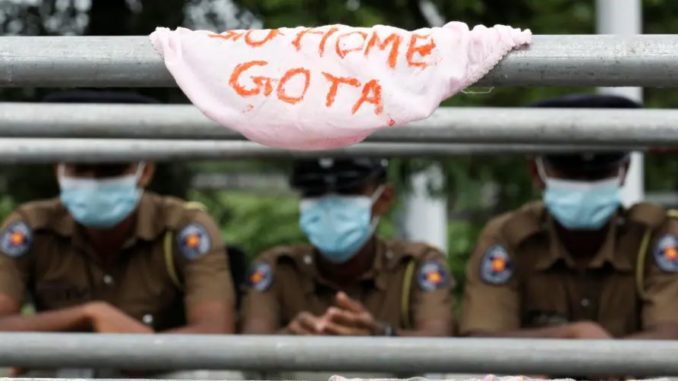
New Delhi: Following a day of anti-government strikes and protests over a worsening economic crisis, Sri Lankan President Gotabaya Rajapaksa on Friday (May 6, 2022) declared a state of emergency.
“The President has taken this decision due to the public emergency situation in Sri Lanka and in the interests of public security, the protection of public order and the maintenance of supplies and services essential to the life of the community,” a statement released by his office said.
The measure, which is effective immediately, drew immediate criticism from the Opposition and Sri Lankan Bar Association.
Calling on Rajapaksa to resign, opposition leader Sajith Premadasa said the state of emergency “runs counter to seeking any solution to the crisis”.
Expressing grave concern over Rajapaksa’s decision, Sri Lankan Bar Association urged him to revoke the decree while pointing out that stifling public protest is not a solution to the crisis.
The BASL also asked the President to explain the reason for his decision and requested him to ensure that the fundamental rights of the people of Sri Lanka are not violated, reported ANI.
“We call upon His Excellency to revoke the proclamation declaring a state of emergency and to ensure that the fundamental rights of the people such as the freedom of expression including the freedom of speech and publication, and the freedom of peaceful assembly which are aspects of the sovereignty of the people are respected and protected and not violated by the State or its agents,” ANI quoted the Bar Association as saying.
The Association assured Sri Lankans to uphold and protect their fundamental rights. However, it also called on the people to remain calm and hold protests in a peaceful manner.
Rajapaksa has refused to step down, repeatedly calling for a unity government led by him, but opposition leaders plan to move a no-confidence motion against the president and the government next week.
He previously declared a state of emergency on 1 April but rolled it back after five days.
Sri Lanka, notably, has been hit hard by the Covid-19 pandemic, rising oil prices and government tax cuts. The island country has been left with as little as $50 million in useable foreign reserves, as per the official estimates.
It has also approached the International Monetary Fund for a bailout.
Bureau Report
Leave a Reply